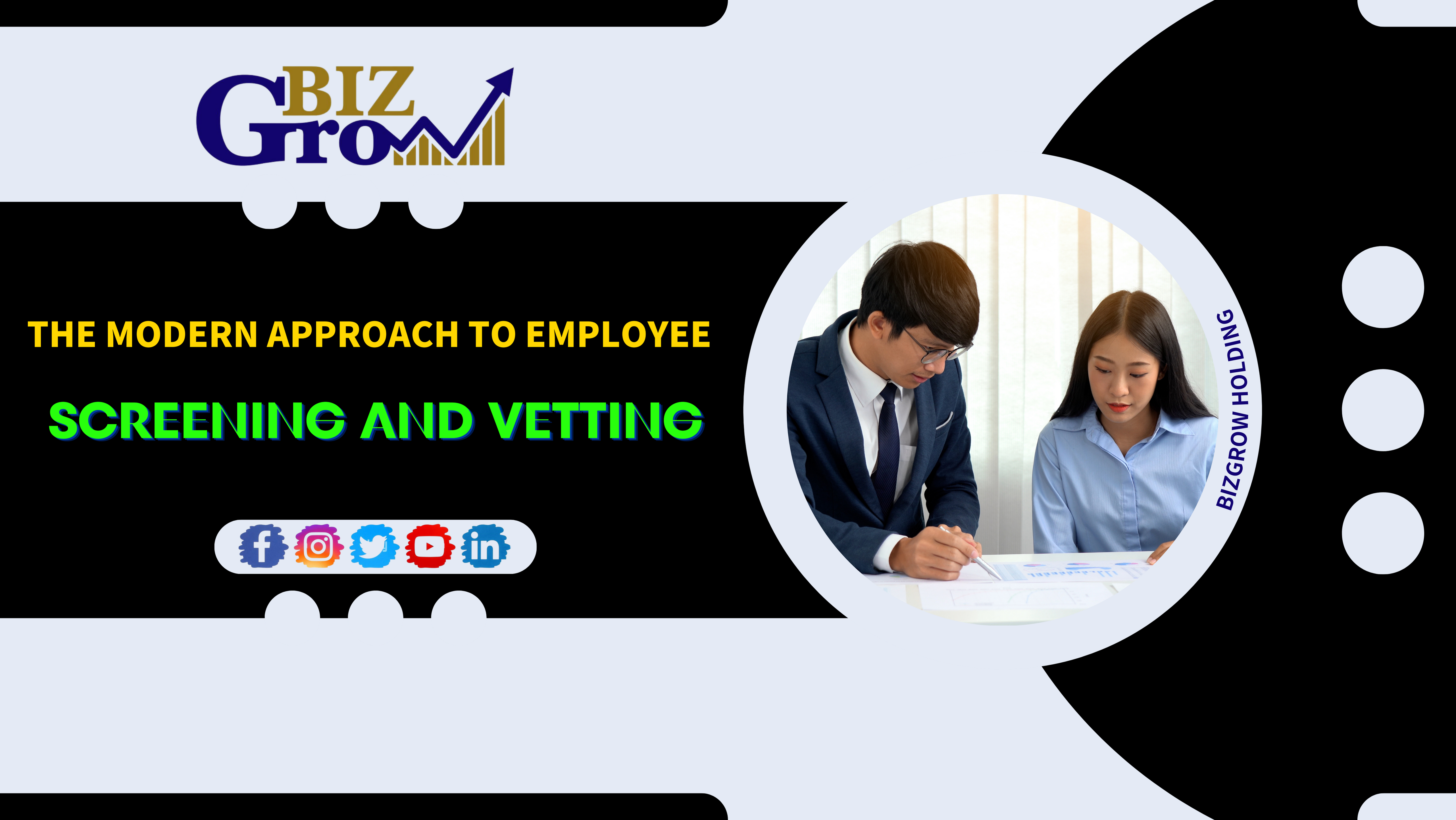The Modern Approach to Employee
Screening and Vetting

Introduction
- As of last update in September 2021, there were several emerging trends and developments in the process of employee screening and vetting. However, we should keep this in mind that these trends might have evolved since then.
- Here are some potential advancements and changes that could have taken place:
- ① AI and Automation: The use of artificial intelligence (AI) and automation has likely continued to grow in the employee screening process. AI can help streamline the analysis of large amounts of data, enabling more efficient and accurate assessments of candidates’ qualifications, skills, and backgrounds.
- ② Blockchain for Verification: Blockchain technology could have been adopted for secure and tamper-proof verification of credentials, qualifications, and work history. This could enhance the trustworthiness of the screening process and reduce the risk of fraud.
- ③ Biometric Authentication: Biometric authentication methods, such as fingerprint and facial recognition, could have become more prominent in verifying candidates’ identities during the screening process.
- ④ Enhanced Social Media Analysis: Social media screening might have evolved to include more advanced sentiment analysis and natural language processing techniques to better understand candidates’ online presence and behavior.
- ⑤ Soft Skills Assuagement: The evaluation of soft skills and personality traits could have gained more importance in the vetting process. Innovative assessment methods might have been developed to gauge qualities like emotional intelligence, adaptability, and communication skills.
- ⑥ Continuous Marketing: Instead of conducting a one-time background check, continuous monitoring of employees’ records and behavior might have become more common, especially for sensitive roles. This helps organisations stay updated on any changes that could impact an employees’ suitability.
- ⑦ Global Compliance Considerations: Given the increasingly global nature of the workforce, employee screening processes could have become more focused on ensuring compliance with various international data protection and privacy regulations.
- ⑧ Emphasis on Diversity and Inclusion: The drive for diversity and inclusion might have led to the development of new screening techniques that help organisations identify biases and ensure fair and equitable hiring practices.
- ⑨ Gamified Assessments: Gamification could have been incorporated into assessments to provide a more engaging and dynamic way of evaluating candidates’ skills and aptitudes.
- ⑩ Remote Hiring and Verification: Remote work trends due to the COVID-19 pandemic might have led to more comprehensive methods of verifying remote employees’ credentials and identities.
- ⑪ Evolving Legal Landscape: Changes in employment and data protection laws could have influenced the way employee screening is conducted. Organisations would need to stay updated on legal requirements to ensure compliance.
- ⑫ Privacy and Transparency: Increased focus on data privacy could have led to more transparent communication with candidates about the types of checks being conducted, how data is handled, and obtaining proper consent.
Conclusion
- It’s important to research and consult with industry experts, HR professionals, and legal advisors to get the most accurate and up-to-date information on the latest trends and developments in employee screening and vetting processes.
- BizGrow Holdings is a leading consulting firm that assists businesses in attaining ISO9001:2015, ISO14001, ISO45001, and other ISO standards. It also helps to achieve SIA-ACS, COP-119, IPSC and other Security Standards. They have a team of experienced consultants who know about the latest trends and best ways of doing things. These consultants work closely with organisations to understand their unique needs and create solutions that are customised to fit their needs.
- BizGrow Holdings is offering consulting services to help businesses improve their quality management and client satisfaction through BS7858 Screening and Vetting Certifications. The BS7858 certification is a security screening standard used primarily in the UK to ensure that individuals working in positions where they have access to sensitive information or secure environments meet specific security requirements. This certification process involves a comprehensive vetting procedure, including background checks, employment history verification, and character references.
- Let our experts coordinate you through the process!
Connect with Us on Social Media!
Stay in the loop and join our vibrant online community by following us on social media! Discover the latest updates, behind-the-scenes moments, and exclusive content that we share across our platforms.
Discover the modern approach to employee screening and vetting.

